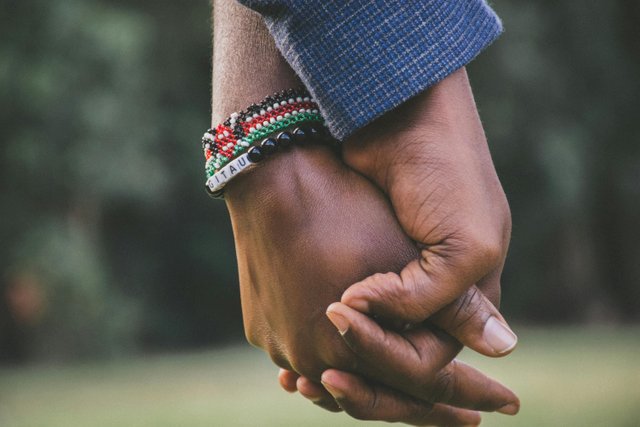Can fear of lose makes your relationships more closed and trustable? || by @maryamnadeem

| Can fear of lose makes your relationships more closed and trustable? |
|---|
Unquestionably, the anxiety toward misfortune can profoundly affect connections, frequently in complex ways. At its center, anxiety toward misfortune originates from a basic sense to safeguard what we esteem. In connections, this dread can appear as a longing to hang on firmly to what we have, expecting that in the event that we release our hold, we might lose it by and large. While this dread may at first appear to encourage closeness and trust, it can likewise make a sensitive harmony among security and suffocation, at last impacting the elements of the relationship.
At the point when people dread misfortune, they might be leaned to put all the more vigorously in their connections, looking for consolation and approval from their accomplice. This increased speculation can prompt further profound bonds and a more grounded feeling of trust, as the two accomplices work constantly to keep up with the association they dread losing. Along these lines, the apprehension about misfortune can propel people to focus on their connections, cultivating a feeling of closeness and responsibility that might not have in any case existed.
Nonetheless, the apprehension about misfortune can likewise inconveniently affect connections, especially when it prompts possessiveness, desire, and control. At the point when people are driven by dread, they might turn out to be excessively defensive of their accomplice, looking to control their activities and associations with an end goal to limit the apparent danger of misfortune. This can disintegrate trust and closeness, making sensations of hatred and suffocation that at last sabotage the groundwork of the relationship.

Besides, the feeling of dread toward misfortune can make an unavoidable outcome, as people who are distracted with the chance of being deserted may coincidentally drive their accomplices away. Continually looking for consolation and approval can be debilitating for the two players, prompting profound weariness and hatred after some time. Along these lines, the feeling of dread toward misfortune can turn into a disastrous power, splitting apart accomplices and eventually satisfying the very result they dread.
Furthermore, the feeling of dread toward misfortune can repress self-awareness and independence inside the relationship. At the point when people are consumed by the apprehension about losing their accomplice, they might focus on the relationship regardless of anything else, dismissing their own requirements and goals all the while. This can make sensations of hatred and stagnation, as one or the two accomplices might feel caught in a relationship that no longer serves their wellbeing. For connections to flourish, it is fundamental for the two accomplices to keep a feeling of uniqueness and independence, permitting each other the space to develop and advance freely.

Regardless of its possible traps, the feeling of dread toward misfortune can likewise act as an impetus for development and mindfulness inside connections. By facing their feelings of trepidation and frailties head-on, people can acquire a more profound comprehension of themselves and their accomplices, cultivating sympathy and empathy all the while. Through transparent correspondence, accomplices can cooperate to address their feelings of dread and frailties, reinforcing the connection among them and laying the basis for a stronger and confiding in relationship.
All in all, while the anxiety toward misfortune can absolutely affect connections in significant ways, its belongings are not innately certain or negative. When directed valuably, the anxiety toward misfortune can propel people to put all the more profoundly in their connections, encouraging a feeling of closeness and believe that can endure everyday hardship. Notwithstanding, when left unrestrained, the apprehension about misfortune can prompt possessiveness, desire, and control, eventually subverting the groundwork of the relationship. By recognizing and facing their feelings of dread, people can develop better, stronger connections based on a groundwork of trust, correspondence, and common regard.
I would like to invite my friends to take part @iffatilyas @meehu @iqraa100
Best Regards 😊
Maryam Nadeem
10% goes to @steemkidss
https://twitter.com/MaryamNade74138/status/1791065628545085557?s=19
You've really take out your time and write your presentation well, Fear of loss can lead to possessiveness, control, and suffocate which can simply be harmful to the relationship also acknowledging the fear of loss while prioritising healthy relationships habits is key.
I wish you all the best on this contest.
Best regards.